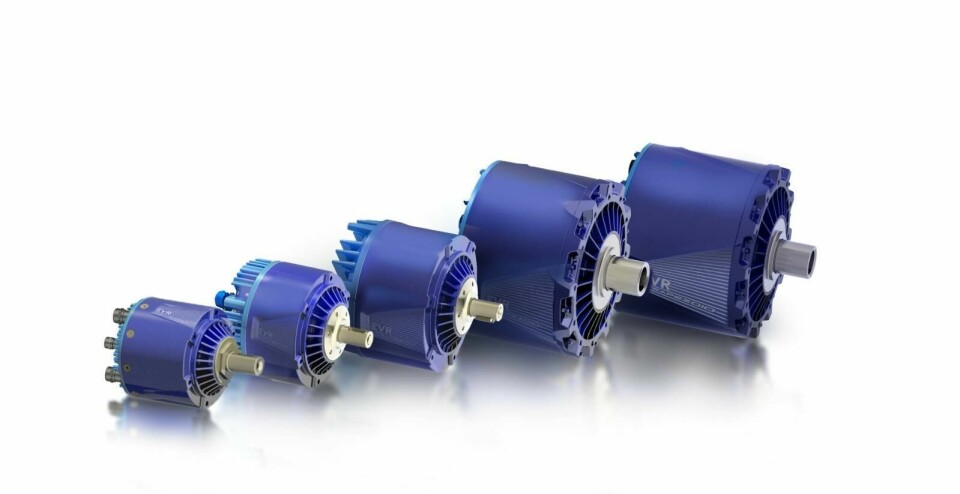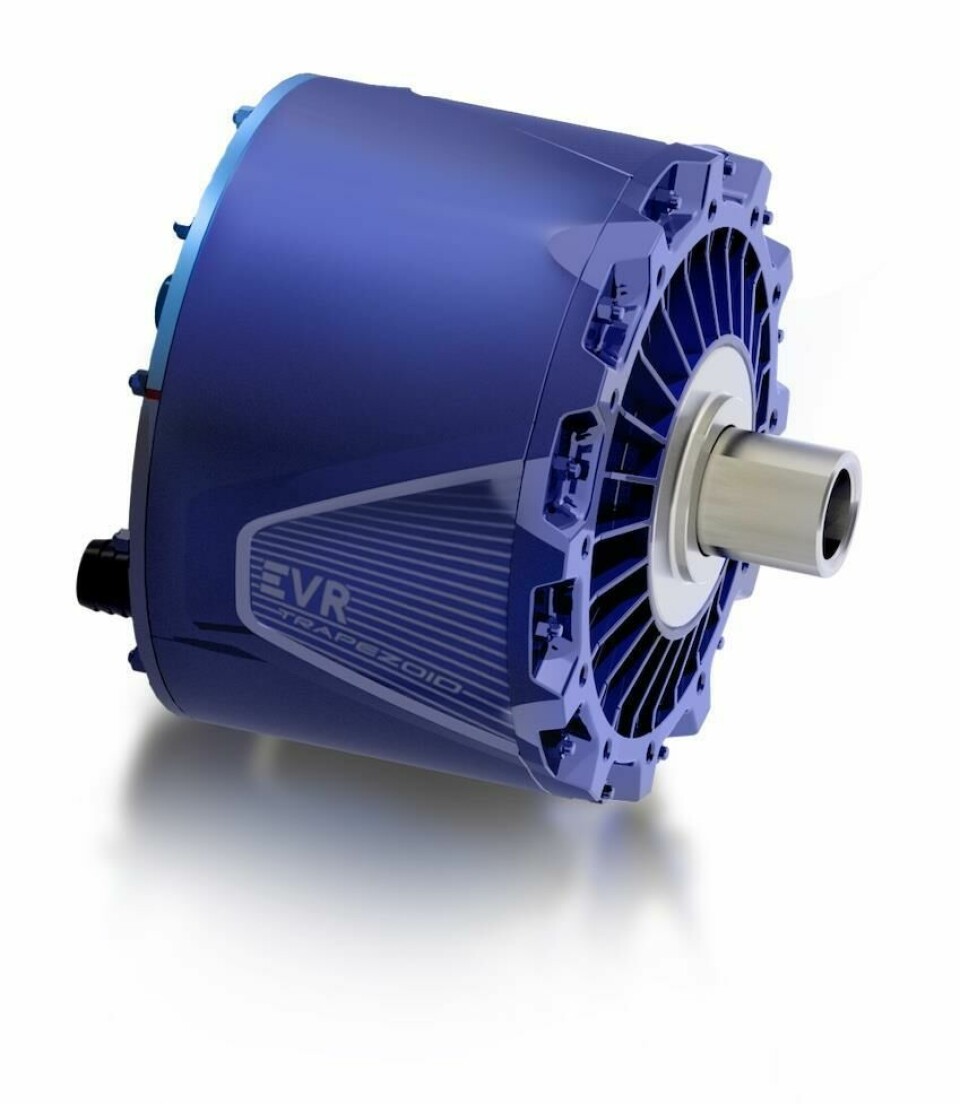
New motor technology to transform electric vehicle production
Opher Doron of EVR Motors describes how a novel electric motor design could have a dramatic impact on vehicle production and the electric vehicle market
The rise of the electric vehicles (EVs) has had an enormous impact on car manufacturing facilities across the world. Huge investments have been made to existing plants to ensure they can house the production of EVs, with numerous established processes requiring updates or alterations, and entirely new areas of production added for EV-specific processes like battery pack assembly and installation.
But it’s not just the inclusion of the battery pack that is impacting vehicle production facilities. The electric motor is also an integral piece of the EV puzzle, and while it is arguably a less complex component, the way in which it is designed and produced could have a significant impact on manufacturing plants.

The majority of EVs currently on the market use one of three motor designs: the asynchronous induction motor, the synchronous permanent magnet motor, and the electrically excited synchronous motor. Each of these has its own merits and shortfalls relating to efficiency, reliability, cost and cooling needs. Several other motor designs have been trialled and tested, but these are yet to gain any notable traction in the market. EVR Motors is hoping to change that with its Trapezoidal Stator Radial Flux Permanent Magnet (TS-RFPM) technology.
The Israel-based company was formed in 2012 by Eli Rozinsky, Victor Kislev, and Ruslan Shabinski – three electrical and mechanical engineers that worked in the automotive, renewables and IT industries. The trio were initially focused on developing generators for small wind turbines. In 2018 and 2019, the company executed a significant turnaround by transitioning to traction motors for EVs, growing the team and attracting new investors. In 2021, it prototyped its TS motor, and has since worked on maturing the technology, increasing market traction and developing multiple additional motors to address different market segments, from two-wheelers to passenger cars.
Speaking to AMS, Opher Doron, CEO of EVR Motors, outlines the potential impact that the company’s technology could have on the EV market and vehicle production facilities, and touches on his ambitions for global expansion.
Can you outline EVR’s electric motor technology, how it works and what benefits it offers?
Opher Doron (OD): EVR’s TS-RFPM is a unique motor design. This design incorporates 3D trapezoidal teeth which enhance magnetic flux generation. Special 3D coils are pre-wound and mounted on the trapezoidal teeth in a manner which achieves a high-fill factor and high copper utilisation. Finally, improved heat dissipation contributes to the very high-power density.
Instead of using laminations, TS-RFPM motors utilise soft magnetic composites (SMCs), enabling the creation of 3D shapes within the motor. This feature not only contributes to the overall compact design but also allows for high power and torque densities. Moreover, the unique coil shape offers flexibility in tailoring the motor’s performance to specific voltage and speed requirements. By implementing TS-RFPM technology, significant cost reductions can be achieved. This is primarily due to lower bill of materials (BOM), as well as a simplified assembly process.
How might TS-RFPM impact vehicle production?
OD: TS-RFPM technology has the potential to have a significant impact on vehicle production. Electric vehicle manufacturers are actively seeking motors that are smaller, lighter, and more cost-effective while delivering increased power, efficiency, and flexibility. RFPM technology addresses these requirements precisely.
The ability to provide different voltage, power, and speed options within the same motor design offers a considerable advantage in terms of flexibility for vehicle platform decisions at the OEM level. This means that manufacturers can adapt a single motor design to meet various vehicle specifications, reducing complexity and streamlining the production process.
Is anything specific or different needed for production lines to make your motors when compared to conventional electric vehicle motors?
OD: Firstly, RFPM motors do not require the use of fancy or unique materials specifically for the motor itself. This means that there are no specialised materials needed, making the production process more straightforward in terms of material sourcing. The uniqueness of TS-RFPM motors lies primarily in their innovative shapes and designs, rather than the materials used for manufacturing.
In terms of the manufacturing line set-up, the production line for RFPM motors entails mounting of the special coils on the stator, thereby saving the “manufacturing” of coils as part of the motor assembly process. Most other production steps are similar to those used for traditional motors.
There has been much discussion surrounding the use of various materials in production since the chip shortage, Covid and disruption of supply chains, and even the growing pressure to move away from rare earth metals. Can you talk about the materials needed to produce your electric motors, how they are sourced, and how you mitigate from industry challenges?
OD: While many of the materials used are standard across the industry, we also incorporate soft magnetic composite (SMC) in our motor design. SMC enables our special topology and offers excellent magnetic properties, enabling improved performance compared to traditional laminated iron cores. Several manufacturers specialise in producing SMC, offering a range of grades and specifications to meet diverse application requirements. Dedicated suppliers of SMC have emerged in the market, providing accessible channels for procurement. And since most of our unique technology revolves around the stator, we can incorporate many of the rare earth free solutions, such as electrically excited rotors and ferrite magnets.

EVR Motors recently signed additional commercial agreements in India and is establishing a new manufacturing facility. Can you provide some information on your global manufacturing footprint, and where you expect to see growth?
OD: We have recently signed our fourth commercial agreement in India, marking a significant step in expanding our motor availability for a wide range of uses, from two-wheelers to passenger cars and commercial vehicles. Currently, each of the partners involved in these agreements is at various stages of setting up production lines to manufacture electric motors based on EVR’s innovative and proprietary motor topology.
Furthermore, to support our growing customer base, we are establishing a wholly owned subsidiary, EVR India, making us the first Israeli automotive company to have its own manufacturing facility in India. This subsidiary will specialise in manufacturing our unique electric motor coils, a key patented component of EVR’s motor topology. These coils will be supplied to EVR’s partners both within India and globally.
What is on the horizon for EVR Motors? Does the company have any specific targets that it hopes to achieve in the near future?
OD: One of the primary objectives is to enter the European market by establishing agreements with additional Tier 1 suppliers or Original Equipment Manufacturers (OEMs) who will utilise EVR Motors’ technology to manufacture their own motors. This strategic move into Europe follows the company’s successful partnerships in India, which also serves as a gateway to other markets in East Asia.
In line with this expansion, we have recently welcomed Nick Rogers, a highly experienced global automotive leader, to our board. With an extensive background of 38 years in the industry, Rogers has held prominent positions culminating in Executive Director of Product Development at Jaguar Land Rover. His familiarity with European OEMs, knowledge of the Indian automotive market, and diverse engineering expertise make him a valuable addition to the board.


